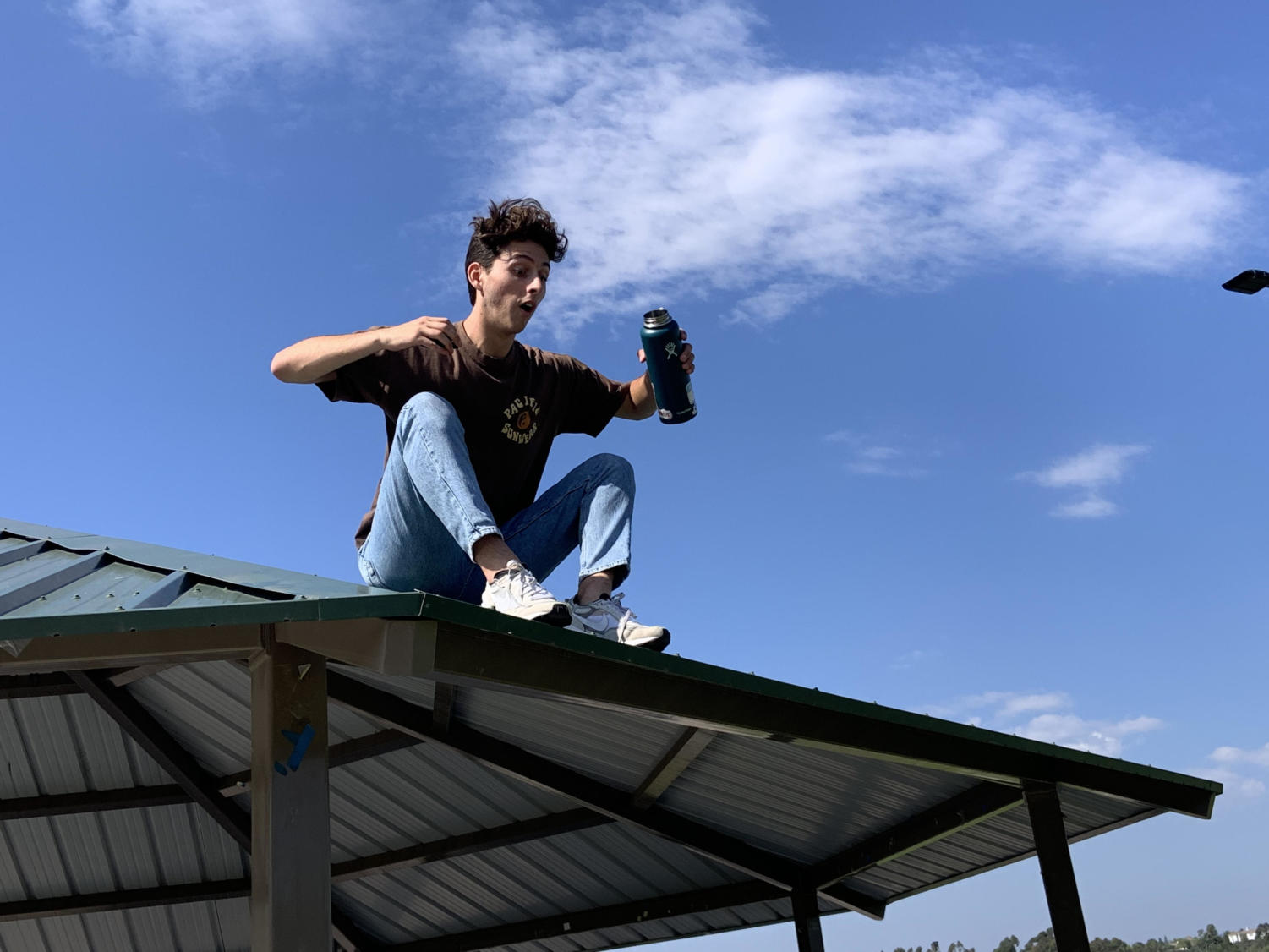Brady splashes out of Senior Assassin
October 14, 2022

Looking back at it all, David Horne (12) has only one real way of describing how he got out of this year’s Senior Assassin game.
“I was gullible,” he said. “My biggest advice to future players is to not be as gullible. It pays sometimes to question things.”
In the first week of the game, Horne found himself under the overhang of a park gazebo. After being put on bounty for appearing with his floatie on campus, he’d been convinced by Brad Brady (12) to let him get him out.
“Brad was really convincing actually,” Horne said. “Since his sister had played in the years before, he’d heard that the team with the best kill video could get back in, even if they were out.”
Lured by the promise of this possibility, Horne agreed to participate. As Brady’s friend recorded, Brady, on the roof of said gazebo, dumped a gallon of water from a plastic tub on Horne.
Horne, on team Splash Bros with partner Xavier Danielson (12), had fallen victim to a team that would soon become notorious for its bounty kills. The promise of a revival, too, slipped away.
“I mostly felt really bad for my partner,” Horne said. “Since he was out too, because I’d gotten out.”
Horne, however, was only one of Brady’s many victims. Within the second day of the game, Brady had already gotten two people out—one being his target, Melody Zhao (12), and the other being a player on bounty.
Now that he himself is out, Brady can barely remember how many people he killed.
“It’s probably anything from eight to nine or maybe as many as 10,” Brady said. “It’s kind of hard to remember at this point, since a lot of the times I’d simply stop by the house of someone on bounty on my way to or from school.”
While Brady’s weapon may have seemed to be his ubiquitous water bottle, in truth however, his biggest weapon was his mind. Each kill, no matter its context, was carefully planned out.
“I definitely invested quite a bit of time into the game,” Brady said. “It had to have been at least six hours a week, in terms of trying to get my targets out, and in eliminating all of the people I could on bounty.”
Near the end of his career, Brady embarked on a video-making series, directing and shooting several multi-scene assassination clips. Having gained a reputation as a master assassin, and as a player who would guarantee a cool elimination video, more than one player, either on bounty or tired of playing, approached him, asking him to make their endings memorable.
Despite his long list of successful eliminations, Brady’s career ended on the last evening of the third wave, when he allowed his assassins to get him out.
“Since I wasn’t going to get my target out, I thought I might as well let them get me,” Brady said.
This moment of release came on the heels of Brady’s longest investment of time into the game. After spending nearly a day and a half stalking his target Nick Hazzard (12), he realized in the midst of a hot Sunday afternoon that he had become entirely too invested.
“I’ve learned a lot of things during Senior Assassin,” Brady said. “But what I really realized was that there are a lot of other things that I care about too, besides the game.”
While Brady isn’t necessarily opposed to the idea of trying to get back into the game, he’s also made his peace. Now that he’s not spending his weekends laboring for Senior Assassin infamy, his days are open for more than just water-gun-slinging.
“I’m not opposed to trying to get back into the game in the future should the opportunity present itself,” Brady said. “But my time is the most valuable thing I have, and the amount of time required to win the game is not worth the reward.”
As one of his more memorable victims, Horne himself doesn’t exactly blame Brady for the latter’s intensive, insistent quest to eliminate as many players on bounty as possible.
“At the end of the day it’s just a game,” Horne said. “We’re all just playing it.”


